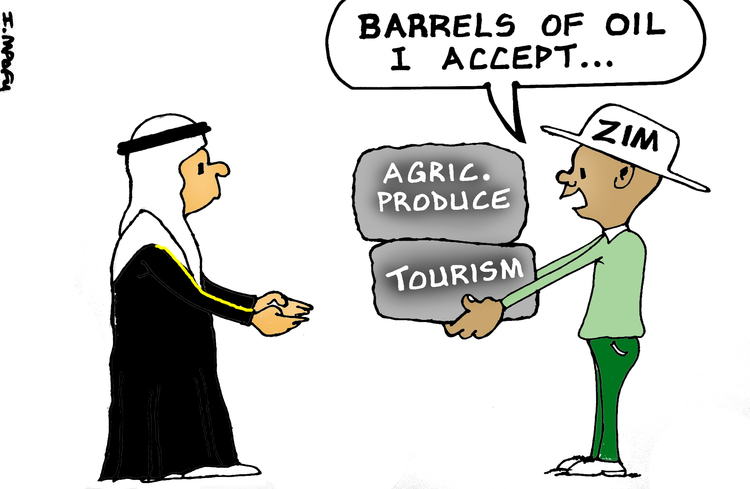Let’s not lower our guard against second Covid-19 wave

Ruth Butaumocho
African Agenda
“The global recovery from the Covid-19 pandemic will depend on the world coming together in a collective endeavour backed by science, finance and political resolve.”
The above quote from the African Development Bank (AfDB) president Akinwumi Adesina during a virtual discussion on the long-term socio-economic impact of Covid-19, is a progressive observation on the role of African leaders in the fight against the virus.
Several countries are under siege from a second wave of Covid-19 following a spike in infections in the last two weeks.
Already hospitals and morgues in Europe are filling up in an unprecedented and shocking manner.
New lockdowns, night-time curfews, increase in military field hospitals and a litany of lockdown measures are now the new face of Europe as leaders battle to contain the surge in new infections.
Reports show that the United Kingdom has become the first European country to pass 85 000 deaths from Covid-19, whose second leg is expected to stretch to April next year.
From the time the first Covid-19 case was reported in China last year, the pandemic has upended the world. It has left everyone scared and many bereaved. It has damaged economies, weakened health systems and scuttled growth.
It is because of its consequential effects that African nations need to do all they can to keep the virus at bay.
Suffice to say, while Europe is already numb with shock of the unprecedented rise in new infections, Africa is taking a lackadaisical approach towards the virus and seems unperturbed by the imminent danger that Covid-19 poses to the continent. While there has been recorded five million deaths mainly inEurope and Asia, Africa’s case has not been catastrophic.
That alone has invited complacency.
With reported increase in new infections, some experts are remain adamant that the spike in reported Covid-19 cases in African countries a second wave, following lockdown relaxations in South Africa, Kenya, Ethiopia, Angola and Uganda.
What is, however, clear is that a second wave is imminent. Africa would need to strengthen its systems against a second wave of Covid-19, which is set to hit the shores of the continent, anytime.
Vice President Constantino Chiwenga recently warned of a possible second wave of Covid-19, saying ignorance and denial could lead to more deaths.
Addressing a gathering in Bulawayo last week, VP Chiwenga who is also the Minister of Health and Child Care, expressed concern over the increasing number of people who were no longer adhering to prevention measures at a time when the world was bracing for a second wave.
Barely a week after the Vice President’s concern, 100 pupils from John Tallach Secondary School in Bulawayo have since tested positive for Covid 19. The Government has since ordered the closure of the school.
The latest development merely points out the gravitas of Covid-19 and the need to adequately prepare for a second wave.
With reported 8 897 positive cases and 257 deaths since the first recorded case in March in the country, the nation cannot afford to continue to be complacent, but would need to up its game by observing the existing World Health Organisations regulations.
Instead of taking notes from countries that are being ravaged, complacency is the biggest winner in Zimbabwe as the multitude have thrown caution to the wind and are no longer observing lWHO guidelines.
Unlike the paranoia that gripped the nation in March, people have become comfortable and downright arrogant. They are now inadvertently easing their protective measures, lowering their facial masks, and have been lulled into a false sense of security, at a time the whole world is gripped with fear following an upsurge in new cases.
In a bid to circumvent the Covid-19 requirements while pushing back progress, some corrupt elements in the health sector are now pulling in the opposite direction, taking bribes for handing out fake Covid-19 test certificates.
Sadly, this syndicate is being orchestrated by some health workers at major hospitals whose major clients are cross-border traders, job-seekers and those desperate for cheaper certificates.
Beyond the borders, similar shenanigans are taking place, as multitudes of people become increasingly complacent.
Other African countries have also thrown down their gauntlets and eased lockdown restrictions, ignoring the stark reality that Covid-19 presents in light of another wave that is already ravaging other countries.
Several leaders are not even applying their minds to the prediction that Covid-19 is likely to hit Africa harder than Europe, North America and other continents due to weak health delivery systems, poverty and the anticipated virulence of the virus.
The pandemic is not yet over and that alone requires African leaders to be vigilant in their fight. While it certainly true that Covid-19 has presented a “new normal”, where people will have to adapt to the effects of the virus, it still remains a threat.
Taking a cue from Adesina, how we come out of this pandemic, and the speed of our collective recovery, “will depend on our shared collective global responsibility, to join hands to mobilise scientific and financial resources backed by strong political will”.
Even in the face of hope, where Pfizer and BioNTech recently announced that they had made progress on a vaccine that is 95 percent effective, it is prudent for everyone outside Government to capitalise on their shared values and actively participate in the fight against the pandemic.








Comments